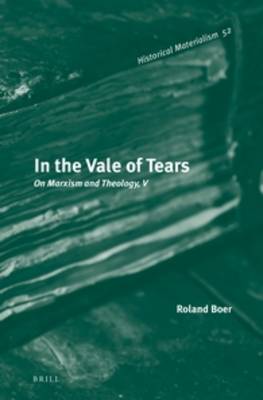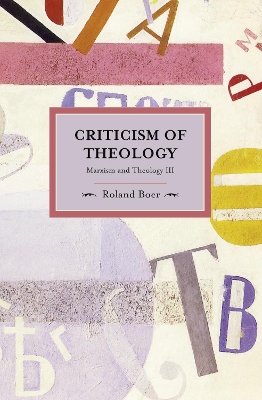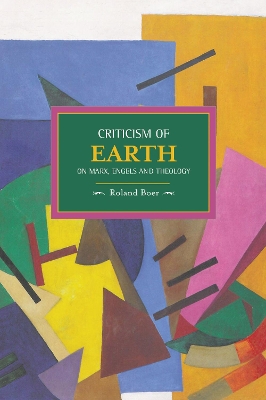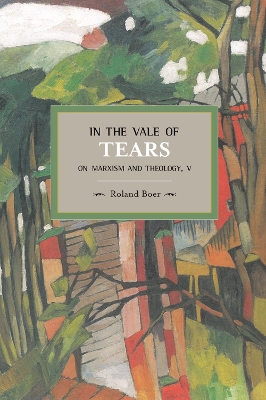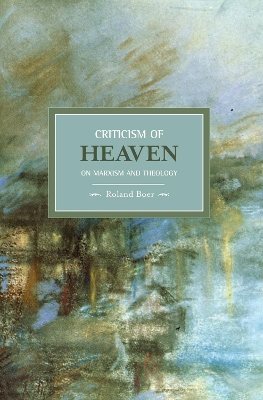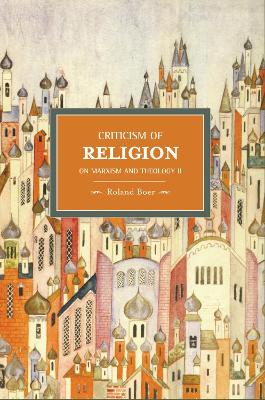Historical Materialism
6 total works
Winner of the 2014 Isaac and Tamara Deutscher Memorial Prize.
In the Vale of Tears brings to a culmination the project for a renewed and enlivened debate over the interaction between Marxism and religion. It does so by offering the author's own response to that tradition. It simultaneously draws upon the rich insights of a significant number of Western Marxists and strikes out on its own. Thus, it argues for the crucial role of political myth on the Left; explores the political ambivalence at the heart of Christianity; challenges the bent among many on the Left to favour the unexpected rupture of kairos as a key to revolution; is highly suspicious of the ideological and class alignments of ethics; offers a thorough reassessment of the role of fetishism in the Marxist tradition; and broaches the question of death, unavoidable for any Marxist engagement with religion. While the book is the conclusion to the five-volume series, The Criticism of Heaven and Earth, it also stands alone as a distinct intervention in some burning issues of our time.
In the Vale of Tears brings to a culmination the project for a renewed and enlivened debate over the interaction between Marxism and religion. It does so by offering the author's own response to that tradition. It simultaneously draws upon the rich insights of a significant number of Western Marxists and strikes out on its own. Thus, it argues for the crucial role of political myth on the Left; explores the political ambivalence at the heart of Christianity; challenges the bent among many on the Left to favour the unexpected rupture of kairos as a key to revolution; is highly suspicious of the ideological and class alignments of ethics; offers a thorough reassessment of the role of fetishism in the Marxist tradition; and broaches the question of death, unavoidable for any Marxist engagement with religion. While the book is the conclusion to the five-volume series, The Criticism of Heaven and Earth, it also stands alone as a distinct intervention in some burning issues of our time.
Criticsism of Theology offers commentary on the engagements with religion and theology by a range of Marxist philosophers and critics. Boer's aim is to gather insights in order to develop a comprehensive theory of religion. Following hot on the heels of Criticism of Heaven (Haymarket, 2009), for which he received scholarly acclaim, Richard Boer's latest volume in the Criticism of Heaven and Earth series (which will ultimately comprise five volumes) is guaranteed find an excited critical niche.
Criticism of Earth thoroughly reassesses Marx and Engels's engagement with theology, analyzing their collected works for discussions of spiritual matters and the persistence of biblical allusions. What emerges is a continued interest that is maintained throughout their lives, from Marx's Critique of Hegel's Philosophy of Right, until the very end with Engels's treatise on the revolutionary origins of early christianity.
In the Vale of Tears brings to a culmination the project for a renewed and enlivened debate over the interaction between Marxism and religion. The book simultaneously draws upon the rich insights of a significant number of Western Marxists and strikes out on its own. Thus, it argues for the crucial role of political myth on the Left; explores the political ambivalence at the heart of Christianity; challenges the bent among many on the Left to favour the unexpected rupture of kairos as a key to revolution. The conclusion to the series 'The Criticism of Heaven and Earth'.
This volume consists of a critical commentary on the interactions between Marxism and theology in the work of the major figures of Western Marxism. It deals with the theological writings of Ernst Bloch, Walter Benjamin, Louis Althusser, Henri Lefebvre, Antonio Gramsci, Terry Eagleton, Slavoj Zizek and Theodor Adorno. In many cases their theological writings are dealt with for the first time in this book. Apart from the critical engagement with the way they use theology, the book also explores how their theological writings infiltrate and enrich their Marxist work.
Offering commentary on the engagements with religion and theology by a range of Marxists, Roland Boer aims to gather insights in order to develop a comprehensive theory of religion. Following the acclaimed Criticism of Heaven, this is the second of a five-volume series called Criticism of Heaven and Earth.
